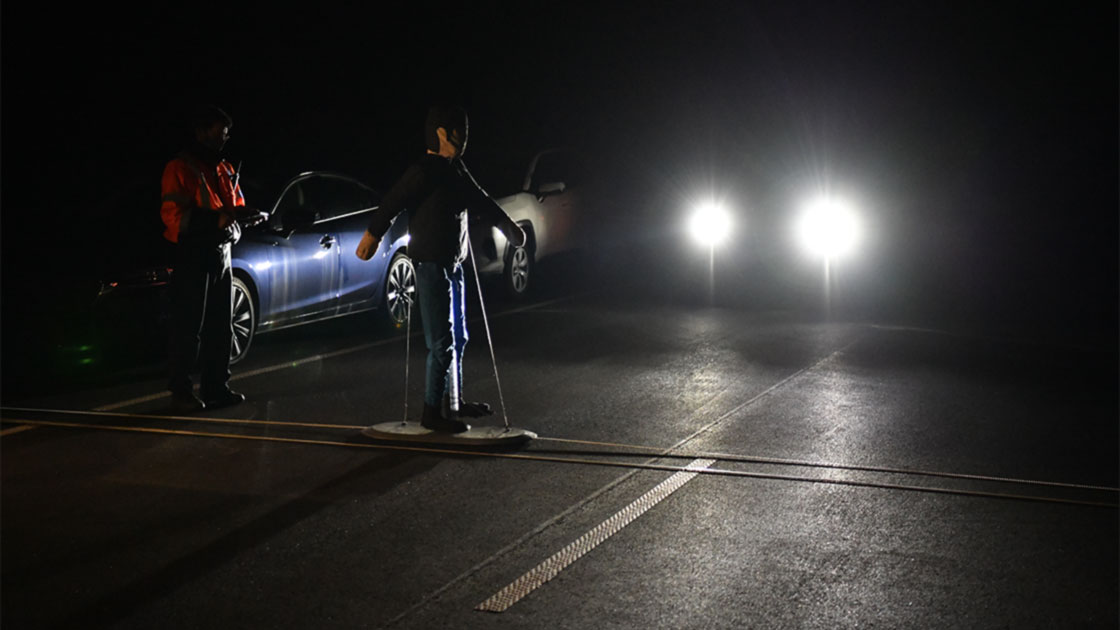
IIHS Developing Nighttime Automatic Emergency Braking Test

The nonprofit Insurance Institute for Highway Safety (IIHS) works to help increase safety on roads in the U.S., and new data collected by the organization shows that automatic emergency braking (AEB) systems may not be equipped to handle dark conditions.
Crash rates for pedestrian crashes weren’t lowered in dimly-lit and nighttime conditions by ARB systems, despite being lowered by 27 percent in well-lit conditions, according to a new study from the IIHS.
IIHS Vice president of Research and study author Jessica Cicchino said, “This is the first real-world study of pedestrian AEB to cover a broad range of manufacturers, and it proves the technology is eliminating crashes.” Cicchino continued, “Unfortunately, it also shows these systems are much less effective in the dark, where three-quarters of fatal pedestrian crashes happen.”
While the study is promising for daylight conditions, showing an overall 30 percent decrease in crashes and a 27 percent decrease in crash injuries.
The IIHS has already worked with automakers to encourage them to improve AEB systems, with many even adding new support for these systems, and the research presents a new opportunity for future research on nighttime conditions, as shown by the pitfalls in Cicchino’s study.
“The daylight test has helped drive the adoption of this technology,” says David Aylor, manager of active safety testing at IIHS. “But the goal of our ratings is always to address as many real-world injuries and fatalities as possible — and that means we need to test these systems at night.”
AEB systems are included in advanced driver assistance systems (ADAS) like Tesla’s Autopilot, with the automaker even developing an overall safety score for owners of the ADAS. No Tesla vehicles were part of the IIHS AEB tests.
To address the shortcomings identified by Cicchino’s research, IIHS says it is now developing a nighttime test, and plans to share its first official nighttime pedestrian crash prevention ratings later in 2022.

